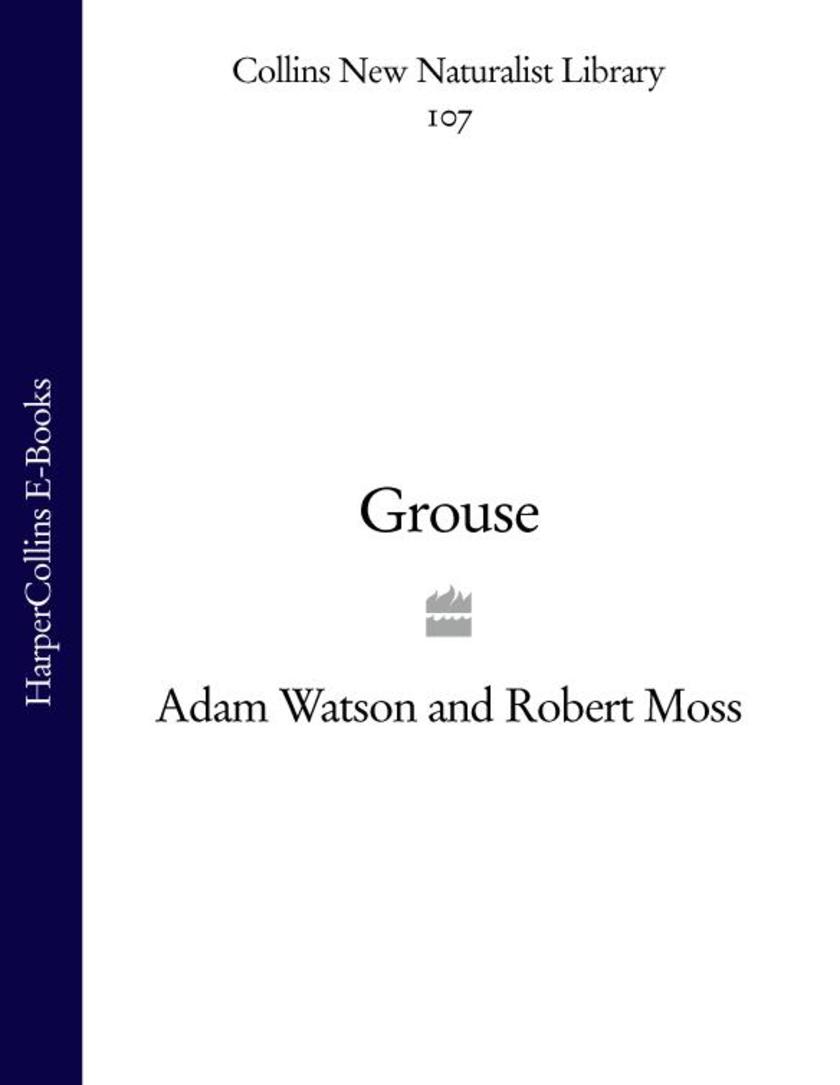
Grouse (Collins New Naturalist Library, Book 107)
¥231.22
With less than twenty species worldwide and only four British and Irish species, the grouse is surprisingly well-known. Its habitats are diverse and relatively remote – ranging from deep forests, through open moorland, to Scotland’s highest peaks. ‘Grouse: The Natural History of British and Irish Species’ covers four of the most emblematic species of our upland regions. Collectively they have the most fascinating life histories of any bird group, individually they have their own stories to tell: the ptarmigan is a resident of our highest mountain areas, the black grouse is famous for its extraordinary mating displays, the capercaillie is one of our largest birds and the red grouse, whilst no-longer one of the few British endemics, is one of the most heavily researched species. All four face similar problems, including habitat loss, predators, pests, disease and food shortage. This is compounded by issues of managed animal populations and controversy surrounding the commercial worth of grouse. This volume in the New Naturalist series, written by two of the world's leading grouse specialists, offers a fascinating insight into the natural history and biology of these birds, including aspects of their behaviour, the historical relevance of their names, the reasons behind population fluctuations and international conservation efforts.

A Foreign Field (Text Only)
¥57.09
This edition does not include illustrations. A wartime romance, survival saga and murder mystery set in rural France during the First World War. From the Number 1 bestselling author of ‘Agent ZigZag’ and ‘Operation Mincemeat’. Four young British soldiers find themselves trapped behind enemy lines at the height of the fighting on the Western Front in August 1914. Unable to get back to their units, they shelter in the tiny French village of Villeret, where they are fed, clothed and protected by the villagers, including the local matriarch Madame Dessenne, the baker and his wife. The self-styled leader of the band of fugitives, Private Robert Digby, falls in love with the 20-year-old daughter of one of his protectors, and in November 1915 she gives birth to a baby girl. The child is just six months old when someone betrays the men to the Germans. They are captured, tried as spies and summarily condemned to death. Using the testimonies of the daughter, the villagers, detailed town hall records and, most movingly, the soldiers’ last letters, Ben Macintyre reconstructs an extraordinary story of love, duplicity and shame – ultimately seeking to discover through decades of village rumour the answer to the question, ‘Who betrayed Private Digby and his men?’ In this new updated edition the mystery is finally solved. This edition does not include illustrations.

Wildfowl (Collins New Naturalist Library, Book 110)
¥206.30
New Naturalist Wildfowl provides a much-anticipated overview of the fascinating birds that have become icons of our diminishing wilderness areas. Wildfowl – swans, geese and ducks – have been the subject of poetry, fables, folklore and music, and a source of inspiration to writers, artists, historians and naturalists alike. Historically, they have featured prominently in our diet – more recently they have become the most widely domesticated group of birds. Wildfowl have been scientifically studied more intensively than any other group of birds and were one of the first groups to highlight more general issues of conservation. Their status as the most popular group of birds is underlined by the success of the original Wildfowl Trust (now the Wildfowl & Wetlands Trust). David Cabot has been obsessed with wildfowl for nearly sixty years. In this seminal new work, he discusses the 56 species of wildfowl that have been recorded either in a natural state, or that have been introduced and now maintain self-sustaining populations in Britain and Ireland. He focuses on their social behaviour, feeding ecology and population dynamics, and in particular their seasonal migration patterns. He also explores the evolution and history of wildfowl and our long relationship with them, through popular mythology and legends, which continue to fascinate us with a sense of mystery and awe.

British Bats (Collins New Naturalist Library, Book 93)
¥456.66
British Bats is a comprehensive account of the natural history of these fascinating animals, from their origins and evolution to their feeding habits and reproduction. This edition is exclusive to newnaturalists.com Bats are arguably the most successful and diverse mammals ever to evolve. In Britain, one in three of our native land mammals is a bat. Their ecology and behaviour is fascinating. Few mammals live closer to humans; in fact many species roost unnoticed in our homes, and some are now almost entirely dependent on man-made structures for their survival. Bats are the only mammals capable of powered flight. They are also one of just two groups which have a sophisticated echolocation system (the other being the dolphins and their relatives). In this book, John Altringham discusses all the different aspects of the natural history of bats, from their origins and evolution to their behaviour, feeding habits and reproduction. He also discusses the threats to the survival of bats, and how we are working to conserve them. Finally, he gives an account of how to watch and study bats in the wild.
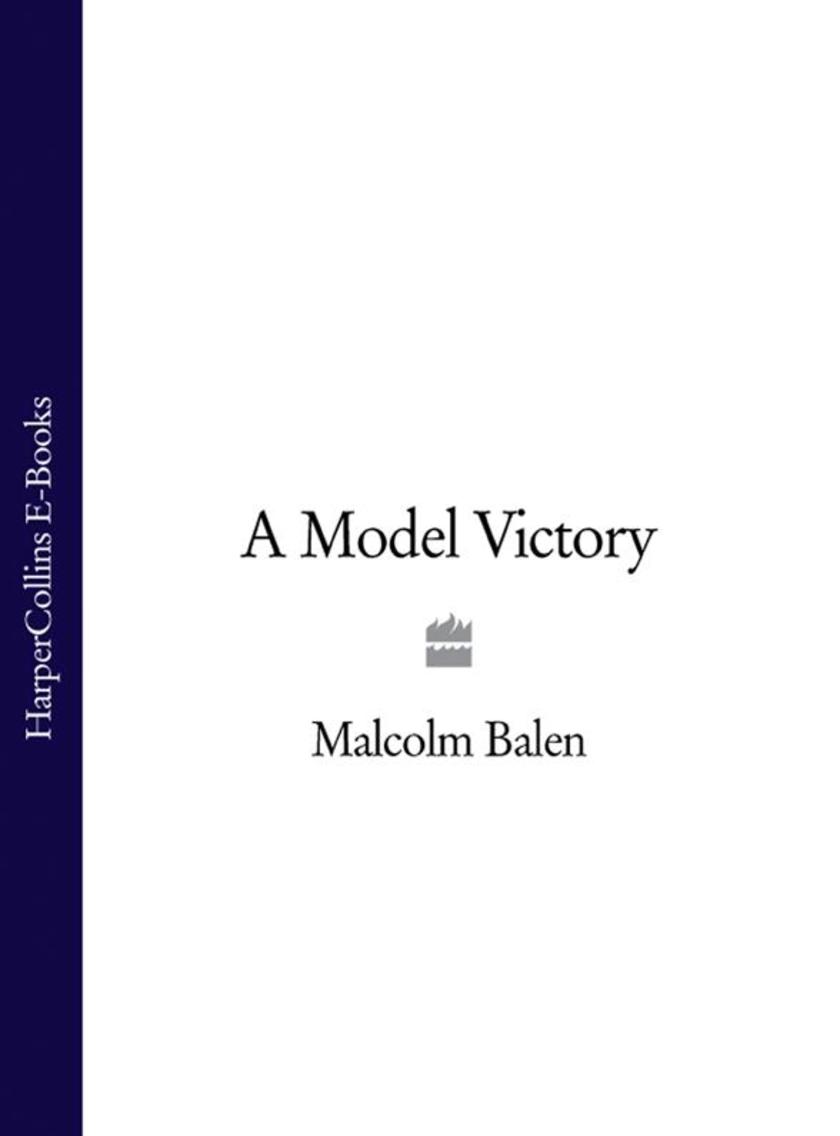
A Model Victory
¥66.22
A vivid retelling of the Battle of Waterloo, based on unpublished soldiers’ written accounts. When a patriotic model-maker recorded the days’ events for posterity he left us with a glorified version of an English victory. Malcolm Balen brings us the muddy truth. More than fifty thousand died or were wounded on the single bloody day of the Battle of Waterloo. This was killing on the scale of the First World War, and yet the glory of the British victory soon came to overshadow any notion of its gore. In this electrifying account of the day itself, Malcolm Balen combines extraordinary first-hand accounts of the battle with the story of William Siborne, a model-maker who, in the wake of the battle, wanted to leave to posterity a perfect and accurate representation of the crucial moment in the battle. The question was: Who won it? Was it Wellington’s forces or Blucher’s Prussians, or a combination of the two? The accounts Siborne used to piece the muddy truth together read as if Waterloo had been fought yesterday. But the accuracy he relentlessly pursued came up against the British establishment and the Duke of Wellington’s desire to control the narrative of the day. In this fascinating and refreshing account of one of the bloodiest days in history, Malcolm Balen interweaves two battles fought: one in the muddy fields of Belgium, and the other over history itself.

Woodlands (Collins New Naturalist Library, Book 100)
¥95.75
The 100th volume of the prestigious New Naturalist series, written by one of Britain's best-known naturalists, explores the significance and history of woodlands on the British landscape ‘Trees are wildlife just as deer or primroses are wildlife. Each species has its own agenda and its own interactions with human activities…’ This 100th volume of the New Naturalist series presents a landmark in natural history publishing. Looking at such diverse evidence as the woods used in buildings and ships, and how woodland has been portrayed in pictures and photographs, Rackham reconstructs British woodland through the ages. Aimed at the non-specialist, ‘New Naturalist Woodlands’ investigates what woods are and how they function. In lively style, Rackham takes us through: ? How woods evolved and how they are managed, ? The basic botany (understanding roots, partnerships, longevity, tree-rings), ? Outline of woodland history, ? Pollen analysis and wildwood, ? Archives of woodland and how to study them, ? Different types of woodland, ? The rise and fall of modern forestry. Illustrated with beautiful colour photographs throughout, this New Naturalist is set to be a classic for collectors and general readers alike.
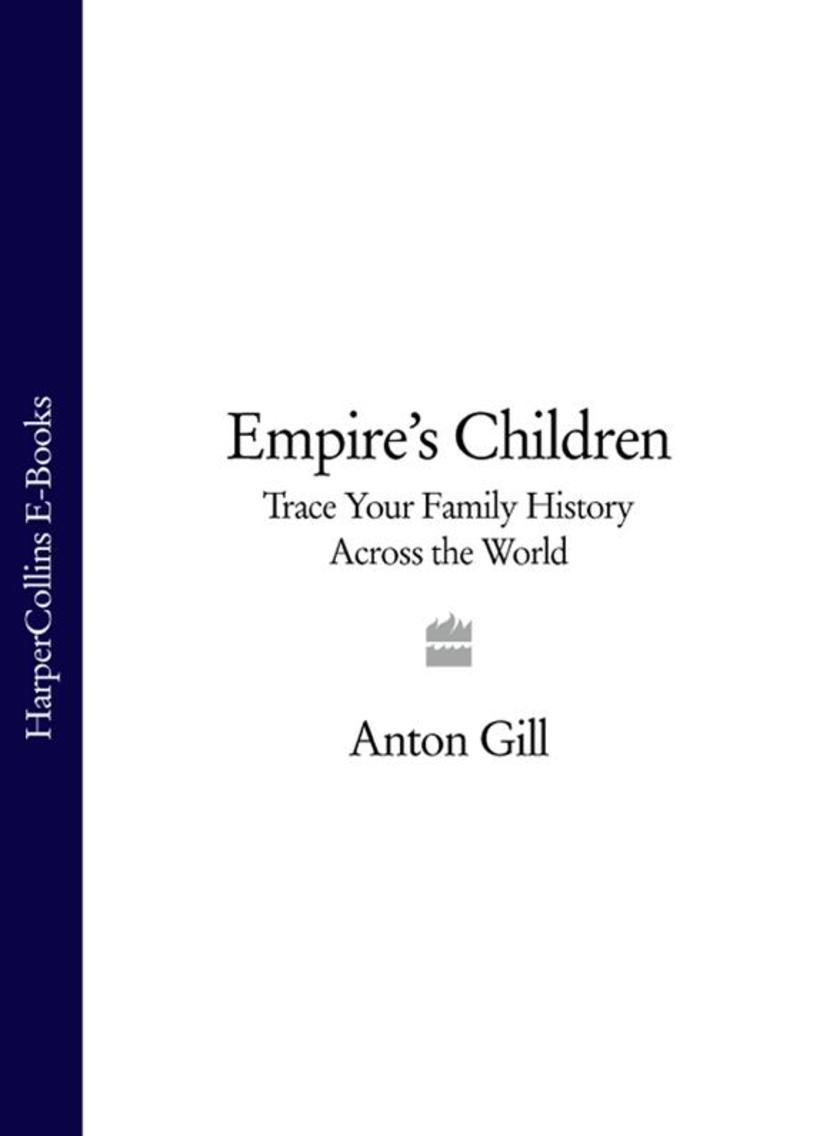
Empire’s Children: Trace Your Family History Across the World (Text only)
¥76.91
From the makers of 'Who Do You Think You Are?' comes 'Empire's Children' – a tie-in edition to a six part TV series for Channel 4 – which tells the story of Empire, and follows the personal journeys of six British celebrities as they retrace their steps through their multicultural past. British society is in every way defined by its Imperial past. It is home to 2.3 million British Asians, 570,000 Caribbeans and 250,000 Chinese. Not to mention Cypriots, Australians and southern Africans. These people represent different cultures and divergent experiences but they all share a common heritage: they are the children (grandchildren, or great grandchildren) of Empire; and their lives have been shaped by that legacy. In the second part of the 20th century, Britain relinquished control of 64 countries and half a billion subjects. During that period, many thousands of those same former British subjects fled their homes to build new lives here. What were they hoping to find? Why did they want to come to the very country they'd fought so hard to free themselves from? What kinds of lives were they leaving behind? What was the reality of their new life here? And how was British society itself shaped by their arrival and assimilation here? Real concerns that are very much in forefront of our minds in the multicultural melting pot that Britain is today. ‘Empire’s Children’ seeks to answer these questions by concentrating on the personal and emotive journeys of six chosen celebrities as they retrace the steps which they – or their parents or grandparents – took in order to reach this country for the first time. The stories will cover post colonial histories of Africa, the subcontinent, the West Indies, Australasia, South East Asia and Cyprus. In some cases, they will spend some time in the former colony and experience the motivations as well as the drama of the journey itself.

British Tits (Collins New Naturalist Library, Book 62)
¥456.66
In addition to dealing with the general biology and behaviour of the birds, Dr Perrins gives full attention to such things as their social lives, their intelligence and adaptiveness, and their puzzling ability to adjust their population sizes to the future availability of food. This edition is exclusive to newnaturalists.com Because of their ubiquity and apparent boldness, the tits are among the most easily observed, and the most popular, of all British birds. The Blue Tit, particularly, is an attractive and confident bird and will arrive at a well-stocked bird table, or at a bag of peanuts outside a window, within a few minutes of its being set out. Curiously, little has been written about tits for the general naturalist. In this book, Christopher Perrins, who succeeded the late David Lack at the Edward Grey Institute of Ornithology in Oxford, sets out to remedy this omission. Dr Perrins has spent many years studying these small birds in great detail and has himself made many important discoveries about their lives and behaviour. The book deals with seven species of tit. These include the six members of the true tits - Coal, Great, Blue, Crested, Marsh and Willow Tits - as well as the more distantly related Long-tailed Tit. In addition to dealing with the general biology and behaviour of the birds, Dr Perrins gives full attention to such things as their social lives, their intelligence and adaptiveness, and their puzzling ability to adjust their population sizes to the future availability of food. Dr Perrin's study demonstrates that there is much unsuspected complexity - some of it still not clearly understood - in the lives of even the most popular of groups of birds; as such it will be of interest to every birdwatcher, amateur and professional alike.
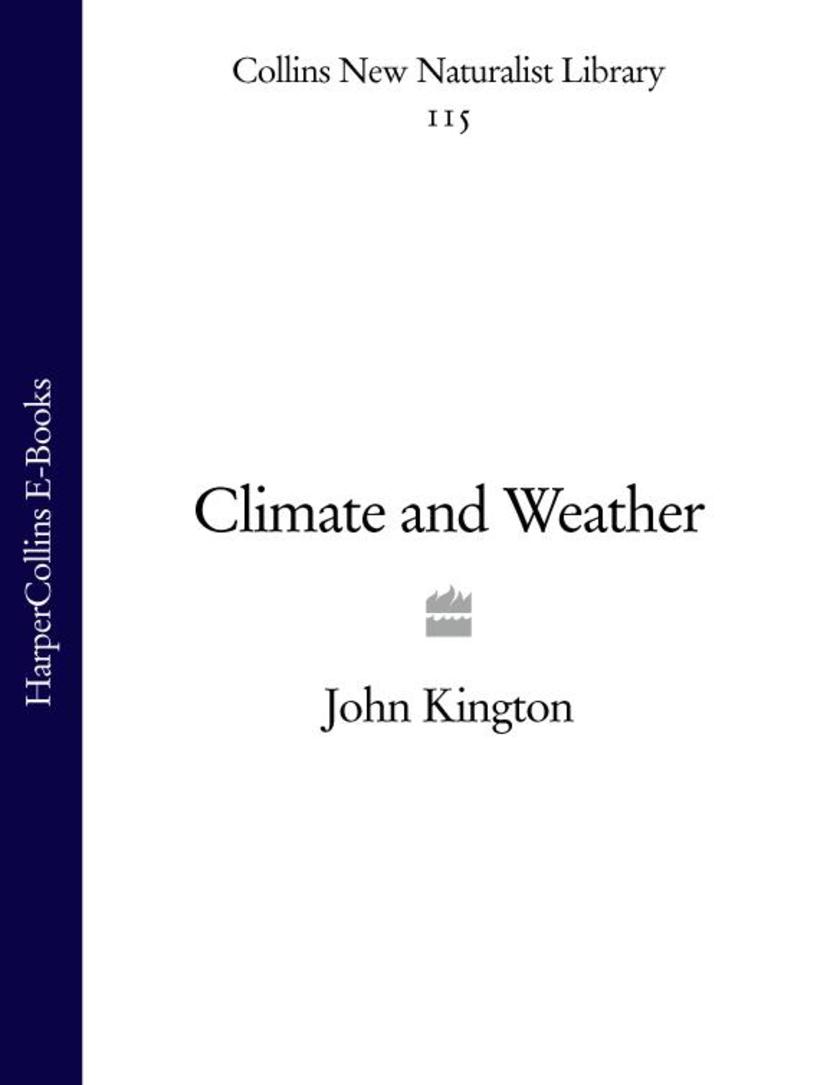
Climate and Weather (Collins New Naturalist Library, Book 115)
¥221.12
Reviewing the history and causes of climatic change and evaluating regional models, this New Naturalist volume offers an important analysis of climatic variations. Much has happened in our knowledge of climate and weather over the past fifty years. The recording of relations between weather and natural history has continued to be of constant interest, with the weather providing a continual and essential backdrop to natural history accounts. But the significance of this backdrop has been very much widened by our better understanding of climate change and its effects on flora, fauna and biodiversity and also by our increased knowledge of historical climates and weather events. In this timely addition to the New Naturalist Library, leading climatologist John Kington offers a comprehensive and up-to-date survey of the diverse climate of the British Isles. Examining the ways in which regional climates evolve from the interplay of meteorological conditions and geography of the British Isles, the author analyses the climatic characteristics and provides a historical overview of changing weather patterns, which is complemented by fascinating and never-before published photographs. Kington reviews the many ways in which people have observed and recorded weather conditions throughout the ages. It is a story based on a rich and varied resource stretching back 2000 years. This approach has allowed climatic trends, anomalies and extremes to be identified over the past two millennia, putting our present experience of weather into striking perspective.
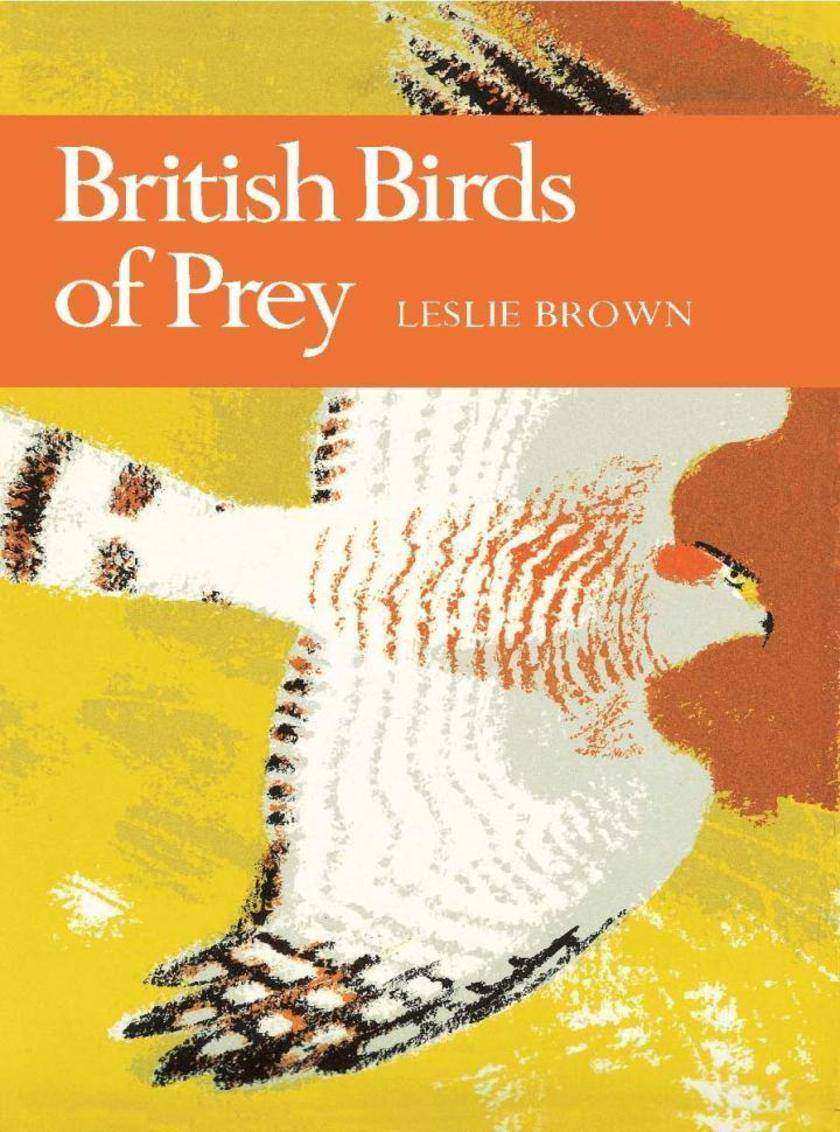
British Birds of Prey (Collins New Naturalist Library, Book 60)
¥456.66
Leslie Brown's account of our 15 resident, 7 vagrant and 2 migrant species of eagles, falcons, hawks and vultures in Britain presents a great mass of scientific information about our birds of prey in a manner as attractive to the general reader as to the dedicated ornithologist. The diurnal raptors are among the most arresting and dramatic of British bird species, from the magnificent and immense golden eagle of the Highlands to the more widespread but equally spectacular peregrine falcon and the frequent and adaptable kestrel of motorways and urban ledges. Leslie Brown's account of our 15 resident, 7 vagrant and 2 migrant species of eagles, falcons, hawks and vultures in Britain presents a great mass of scientific information about these birds in a manner as attractive to the general reader as to the dedicated ornithologist. Each of the resident species is discussed in detail - its status, past and present; its feeding and hunting behaviour; its life history; its breeding behaviour; migration and the threats to its survival. Then the biology of the birds of prey, changes in their habitat and status, their food habits, breeding behaviour, their territories and populations are examined in depth in separate chapters. An acknowledged world authority on birds of prey - co-author with Dean Amadon of Eagles, Hawks and Falcons of the World, and author of many other books besides - Leslie Brown is immensely enthusiastic; and the many tables, maps, figures and bibliography are all indicative of the thoroughness of his research. Also illustrated with 40 superb black and white photographs.

Plant Pests (Collins New Naturalist Library, Book 116)
¥273.90
Ever since man first cultivated plants and grew crops, insects, mites and other creatures have risen to prominence as pests, but it is only throughout the last two centuries that we have come to study them in any detail. Whereas in the past, emphasis has mainly been placed on ways to protect cultivated plants from attack or damage, nowadays our over-reliance on pesticides has been replaced by a far more enlightened approach to plant protection. Though chemical pesticides still have a role to play, environmental aspects and non-chemical means of pest control have become equally, if not more, important. This requires a greater appreciation of ecosystems, coupled with a greater understanding of individual pests, including their habits and their role in the environment. Drawing on a lifetime of experience, David V. Alford provides a fascinating account of the natural history of the insects and mites that inhabit our farms and gardens, and feed on our cultivated plants. He shows how and why the different operations of cultivation affect their world, and why plant pests should not be viewed as different from other wildlife. Coverage of pests includes aliens, and although emphasis is placed mainly on arable and horticultural field crops, pests of protected crops - both edible and non-edible - are also included. Details of pest life cycles, status, distribution and the damage they cause are given, and natural enemies of pests are examined. The author also explores the impact of pesticides, climate change and evolving crop management practices.

Nature Conservation (Collins New Naturalist Library, Book 91)
¥182.47
This latest volume in the New Naturalist series provides a comprehensive study of wildlife conservation in Britain, concentrating on events in the last 30 years. As our environment is subjected to increasing assault from climatic changes and pollutants, conservation has become a growing concern for both specialists and generalists alike. The first chapter of this book considers the political and institutional development of nature conservation and reviews the physical and biological nature of Britain, its geology, climate and wildlife habitats. Subsequent chapters cover the loss of habitats and species, how these losses have been managed and the techniques used to survey and monitor the integration of nature conservation policies in industries from agriculture to forestry and fisheries. Marren continues by discussing how nature conservation has emerged from the sidelines to become a major concern. He addresses the role of the media, weighs up the successes and failures of the conservation movement and looks to what the future may hold.
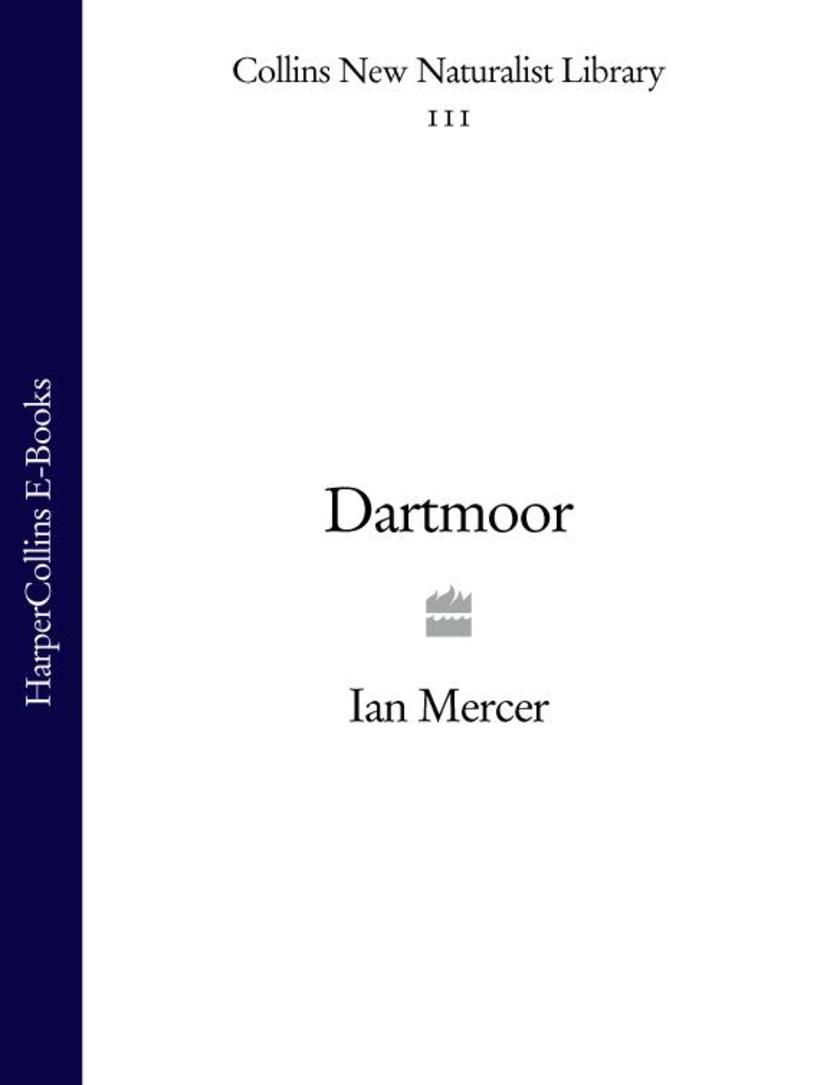
Dartmoor (Collins New Naturalist Library, Book 111)
¥385.34
New Naturalist Dartmoor explores the complex and fascinating history of one of southern England's greatest National Parks, an area of enormous interest to naturalists and tourists alike. Dartmoor is said to be the loneliest wilderness in England. This has been said more often of Dartmoor than any other part of our country. Traditionally in the world of fiction as well as that of fact, Dartmoor has been renowned as a vast and empty moorland area, the property of nature rather than of man. It has always been the public's idea of a lonely place. Not many generations ago it was regarded with a certain amount of awe and nowadays it is one of our most important centres of recreation, an island in upland England of abundant interest to the naturalist. In 1951 it became a National Park, one of the first of several places that have been so designated in Great Britain, helping to conserve and promote both its beauty and cultural heritage. Spanning miles of open moorland, whilst also hiding small secluded river valleys, rare plants and endangered birds, Dartmoor is a place of variety, and has evolved in the public's mind from a forbidding place to that of romance and mystery. In the latest addition to the long-running New Naturalist series, Ian Mercer sets out to explore every aspect of this important area of southern Devon. Focusing not only on its extensive history and physical landscape, but also its cultural place within Great Britain, this is both a comprehensive and engaging look at the wild and rugged landscape that has inspired so many poets, painters and musicians over countless centuries.
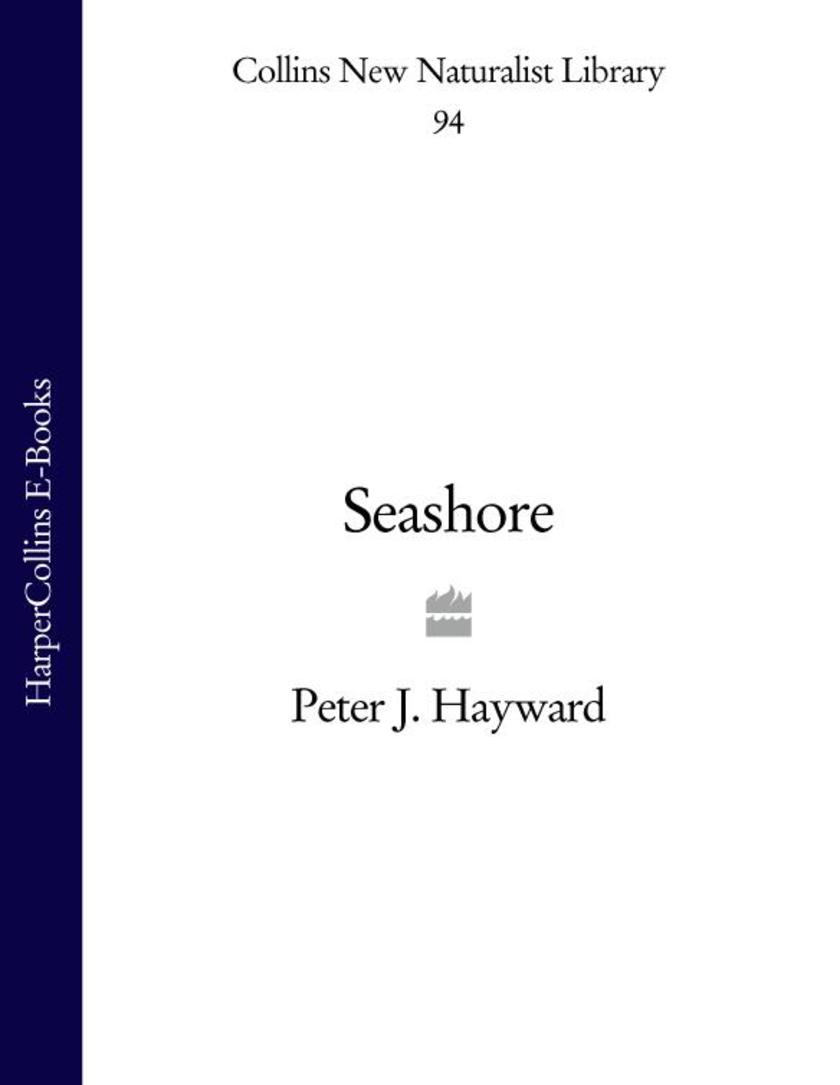
Seashore (Collins New Naturalist Library, Book 94)
¥456.66
A comprehensive, authoritative account of the natural history of the seashore, from earliest times to the present day. The seashore, with its endlessly changing tides, is one of the most fluctuating physical environments on the planet. Home to an abundance of animal and plant life, it is also one of the richest habitats the naturalist can explore. Here in Britain, we are fortunate to have a long and varied coastline, and our relatively large tidal ranges mean that our seashore offers a wide range of coastal habitats, including mud, sand, shingle and rock. In New Naturalist Seashore, Peter Hayward looks at: ? Resident and migrant species, including fish, barnacles, limpets, winkles, sponges, algae, lichens and sea grasses ? The effects of tourism and pollution on these habitats ? The geology of the British Isles, with its sinking and rising coastlines ? The responses and adaptations of plant and animal life to a changing physical environment This narrow strip of beach between the land and the sea that we call the seashore, has always attracted man, in the early years as a source of food, and in Victorian times as a rich habitat that the early naturalists would explore. In this fascinating addition to the highly regarded New Naturalist series, Peter Hayward brings the natural history of the seashore right up to date.
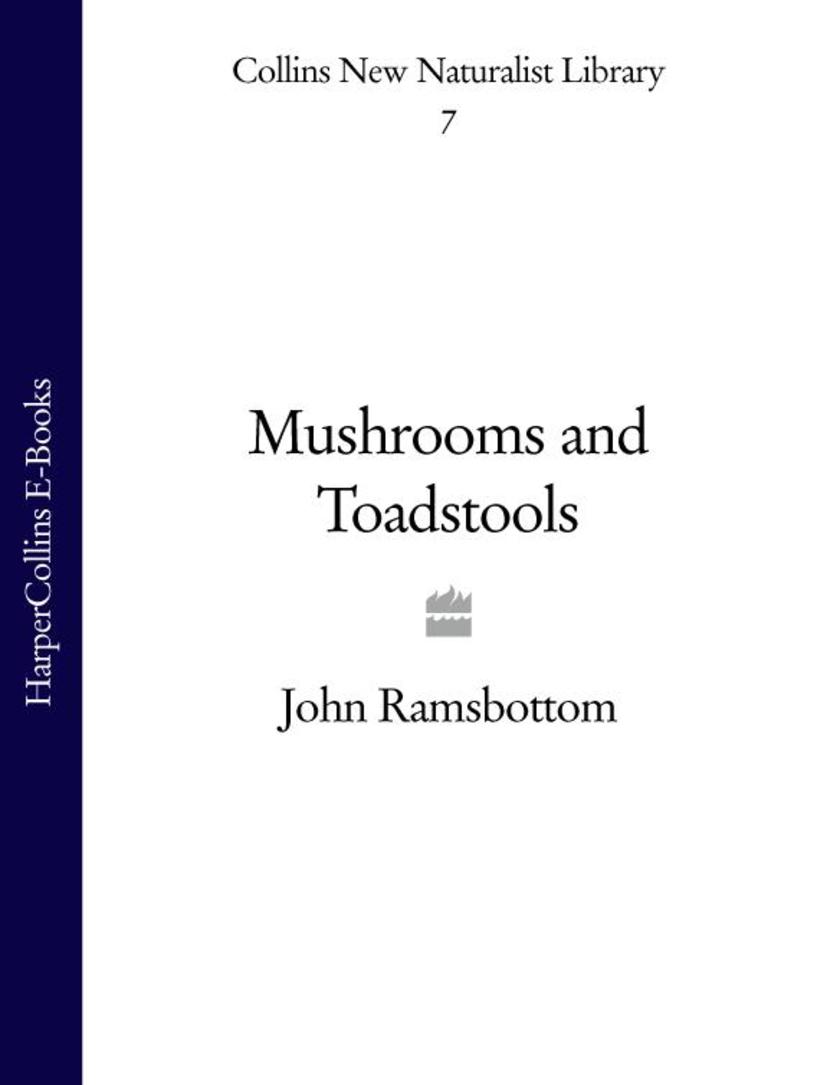
Mushrooms and Toadstools (Collins New Naturalist Library, Book 7)
¥456.66
Britain's neglect of fungi as table delicacies has perhaps been responsible for our surprising ignorance of the natural history of such fascinating plants. This edition is exclusive to newnaturalists.com Puff-balls, more than a foot in diameter; mouls in jam-pots; dry rot; truffles; these are examples of the wide range of the Group, comprising over 100,000 species. Many are of economic importance – for example, the rusts that attack wheat and other crops, and the yeasts which ferment beer – and there are others of great biological interest, such as the mycorrhizal fungi which live in association with the roots of forest trees, orchids and other plants, and help them to absorb food from the soil. Penicillin, of course, has become a household word, and this book's final chapter on the industry is one of the best short accounts of the subject yet writtern. Dr. Ramsbottom was for many years Keeper of Botany at the Natural History Museum, and has devoted his life to the study of fungi in all their aspects. He is equally at home in the field, the laboratory and the library. One of the special features of Mushrooms and Toadstools is the wealth of historical allusion to fungi extracted from old books. Set out in a style reminiscent of Robert Burton, this volume can truly be described as a 20th century Anatomy of Toadstool. Indeed, in fairy rings, science and superstition have gone hand in hand to produce a lively story of alternating surmise and research – and even today a full and final explanation of these mysterious rings has not yet been made. Many of the larger toadstools are brightly coloured and lend themselves admirably to colour photography, as shown by the 80 remarkable illustrations by Mr Paul de Laszlo.
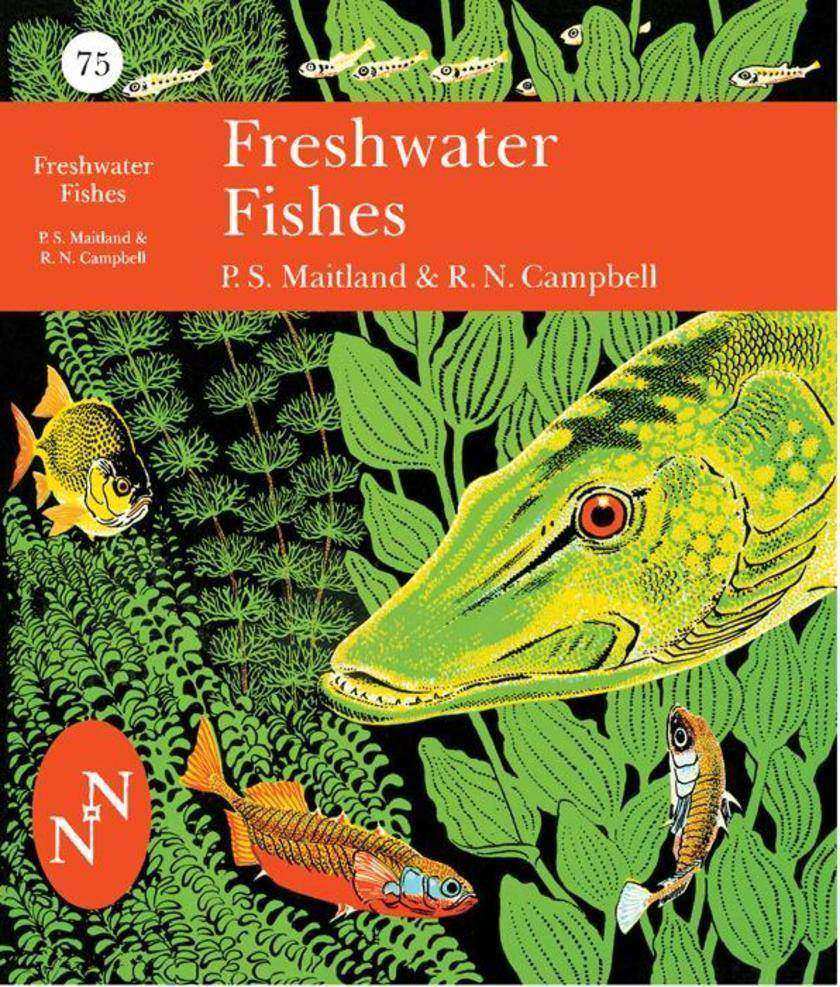
British Freshwater Fish (Collins New Naturalist Library, Book 75)
¥456.66
An in-depth look at the fish that inhabit the fresh waters of Britain and Ireland. These include famous members of the salmon family, such as the Atlantic Salmon and the Brown Trout, and the obscure whitefish, species of which are confined to just a few lakes. This edition is exclusive to newnaturalists.com Fish have been a highly sought after part of the British fauna since Dame Juliana Berners wrote the first fishing book in 1486, but have long been overlooked by naturalists as a part of the British countryside. In this new volume in the New Naturalist series, Dr Peter Maitland and Niall Campbell, who have both spent a lifetime studying and catching fish, take an in-depth look at the fish that inhabit the fresh waters of Britain and Ireland. These include famous members of the salmon family, such as the Atlantic Salmon and the Brown Trout, and the obscure whitefish, species of which are confined to just a few lakes. The information that the authors uncover gives a comprehensive overview of the life cycle of fish, whether mundane spawning or the complex migrations of the Eel and Sea Trout, as well as details on diet, behaviour and ecology. The book also contains the most up to date identification key to both the families and individual species of fish, allowing every species of freshwater fish to be conclusively identified. As well as detailed de*ions of each family, there are also seven chapters on more general subject. These include chapters on fish conservation and the future of the fish fauna in our country: a sign of the change in status of fish from the pursued to the studied.
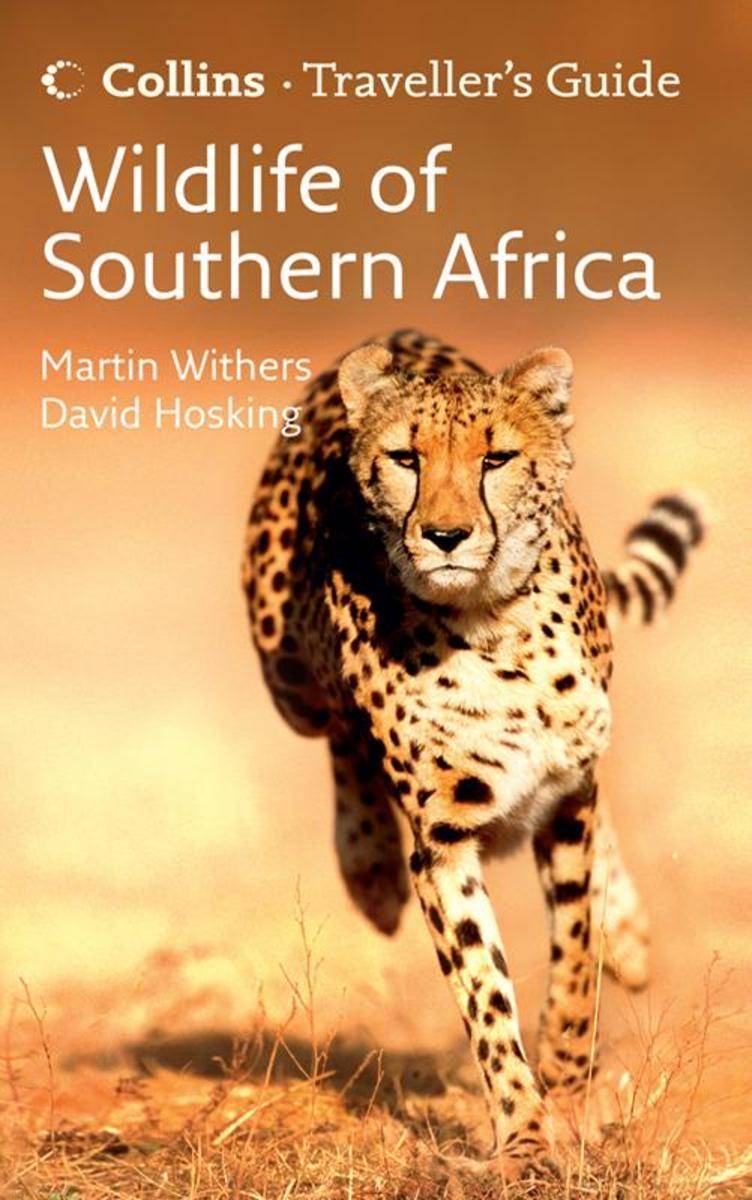
Wildlife of Southern Africa (Traveller’s Guide)
¥91.43
The perfect companion for the safari enthusiast, this complete traveller’s guide to the wildlife of Namibia, Botswana, Zimbabwe, South Africa and Malawi is a must-have for all those considering a trip to the game reserves of this highly popular region. Written and illustrated by wildlife experts who have been leading safaris in the region for over 20 years, and featuring over 400 species of bird, mammal, reptile, amphibian and insect, this informative guide makes the perfect companion for all those considering a trip to the game reserves of southern Africa. Each species is illustrated with a full-colour photograph and features a full species de*ion. Key information on wildlife photography is also included, such as the best type of camera, film and lenses to use, along with information on techniques and codes of conduct.
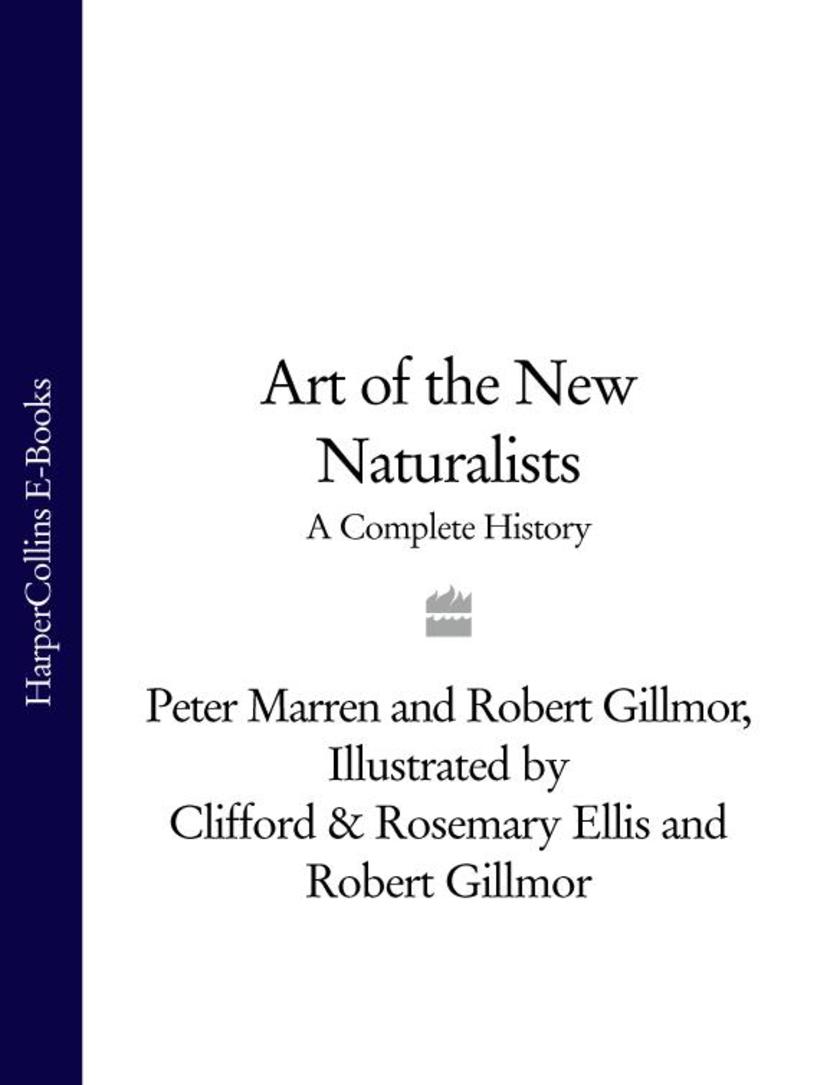
Art of the New Naturalists: A Complete History
¥456.66
The stunning, specially commissioned cover illustrations are one of the great joys of the New Naturalist series, lending it a distinctive style which has inspired nature enthusiasts for many decades. The Collins New Naturalist series is the longest-running and arguably the most influential natural history series in the world with over 100 volumes published in over 60 years. Throughout the years, the highly characteristic dust jacket illustrations have become iconic, lifting the books to a level of collectibility and increasing the level of admiration for an already well-established and respected series. With early cover illustrations prepared by Clifford and Rosemary Ellis, later and more recent covers have been designed by Robert Gillmor. Featuring prints of the awe-inspiring artwork of the New Naturalists, the book will offer a unique insight into Gillmor’s approach to each subject matter and the intricate and creative way through which he has brought his own distinctive style and craft of printmaking to the New Naturalist series. Marren explores the findings from the Ellis archive, which has thrown up considerable information on how the old covers were developed, approved, in some cases rejected, and then proofed. The Art of the New Naturalists offers a fascinating insight into how the creation of these eminent cover designs has developed and progressed and will be essential reading for everyone interested in the frantic workings behind the seemingly serene collection of artwork that is one of Britain’s iconic book series.

Wellington: A Personal History
¥110.46
A bestseller in hardback, this is a highly-praised and much-needed biography of the first Duke of Wellington, concentrating on the personal life of the victor of Waterloo, and based on the fruits of modern research. Christopher Hibbert is Britain’s leading popular historian. Wellington (1769–1852) achieved fame as a soldier fighting the Mahratta in India. His later brilliant generalship fighting the French in Spain and his defeat of Napoleon at Waterloo earned him a dukedom and the award of Apsley House (No. 1, London) and a large estate in Hampshire. His second career saw him make his mark as a politician with commanding presence. Appointed Commander-in-Chief for life, he became Prime Minister in 1827 and presided over the emancipation of Roman Catholics and the formation of the country’s first police force. Privately, he was unhappily married, and had several mistresses (including two of Napoleon’s) and many intimate friendships with women. The private side of the public man has never been so richly delineated as in this masterly biography.

Southern England (Collins New Naturalist Library, Book 108)
¥231.22
Illustrated with beautifully detailed photographs throughout, New Naturalist Southern England comprehensively explores the formation of these wonderful landscapes that are so universally admired. Most people share an enthusiasm for beautiful and breathtaking scenery, explored variously through the physical challenge of climbing to the top of the tallest mountains or the joy of viewing the work of a painter; but while easy to admire from a distance, such landscapes are usually difficult to explain in words. Harnessing recent developments in computer technology, the latest New Naturalist volume uses the most up-to-date and accurate maps, diagrams and photographs to analyse the diverse landscapes of Southern England. Peter Friend highlights the many famous and much loved natural landscapes of the southern half of England, ranging from the Chalk Downs to the bays of Cornwall, Devon and Dorset, and provides detailed explanations for the wide variety of natural events and processes that have caused such an exciting range of surroundings. Setting apart the topography that has resulted from natural rather than man-made occurrences, Friend focuses on each region individually, from East Anglia to London and the Thames Valley, and explains the history and development of their land structures through detailed de*ions and colourful diagrams.
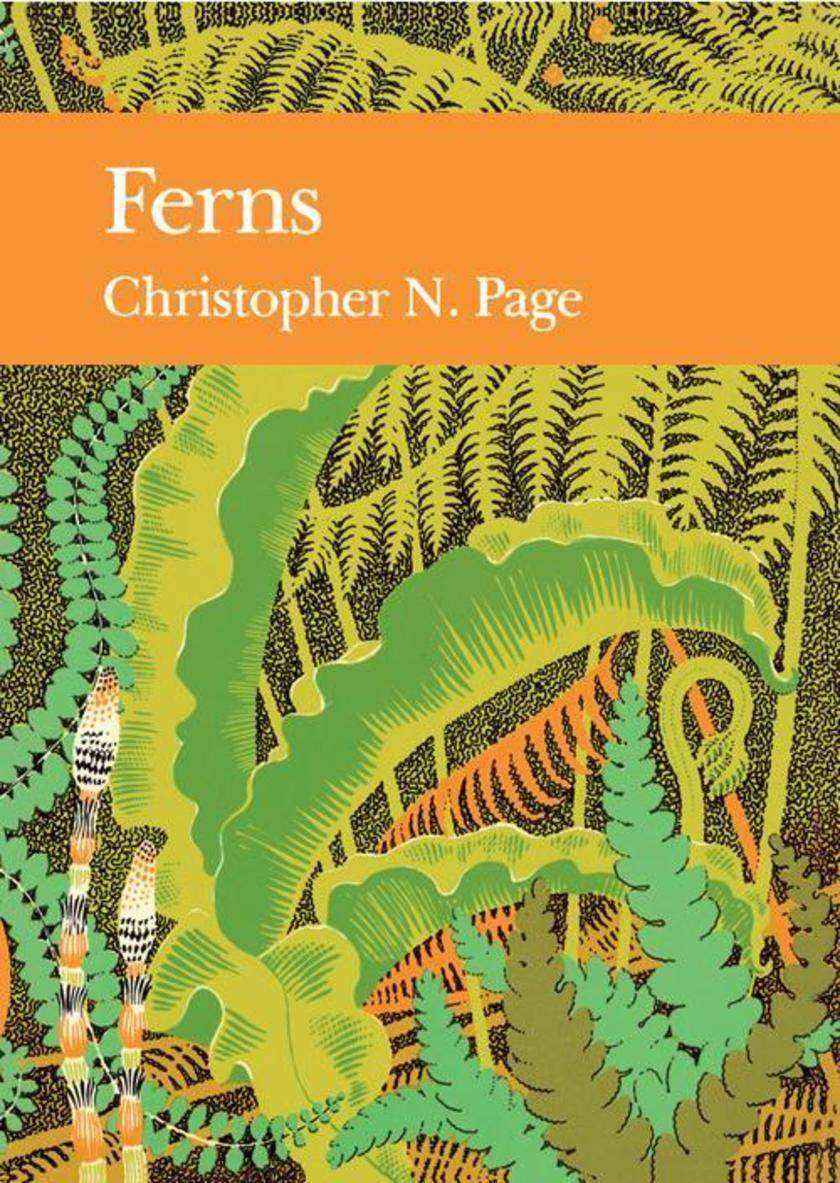
Ferns (Collins New Naturalist Library, Book 74)
¥456.66
Ferns gives the reader an introduction to the reasons for the variety of ferns in the British Isles, as well as the history of their development within this landscape and their use by man. This edition is exclusive to newnaturalists.com Ferns, horsetails and clubmosses, or to use their technical term the Pteridophyta, are a fascinating area of the British flora that ranged from the prehistoric-looking horsetails to the delicate beauty of the Aspleniaceae family (otherwise known as the spleenworts and familiar inhabitants of many a conservatory). Ferns are ubiquitous on this damp island, but often overlooked, overshadowed by the interest in the technicolour of our flowering plants. This book gives the reader an introduction to the reasons for the variety of ferns in the British Isles, as well as the history of their development within this landscape and their use by man. Taking each major habitat, Dr Page details which species of ferns are most likely to be encountered and why. Using numerous examples, he also shows how some species have become highly adapted to their environment using a whole range of strategies varying from the ordinary to the bizarre. Ferns follows in the distinguished New Naturalist series tradition of investigative natural history, drawing from the latest field studies and research, and is the most authoritative, up-to-date and in-depth survey of this part of the British flora available.




 购物车
购物车 个人中心
个人中心



